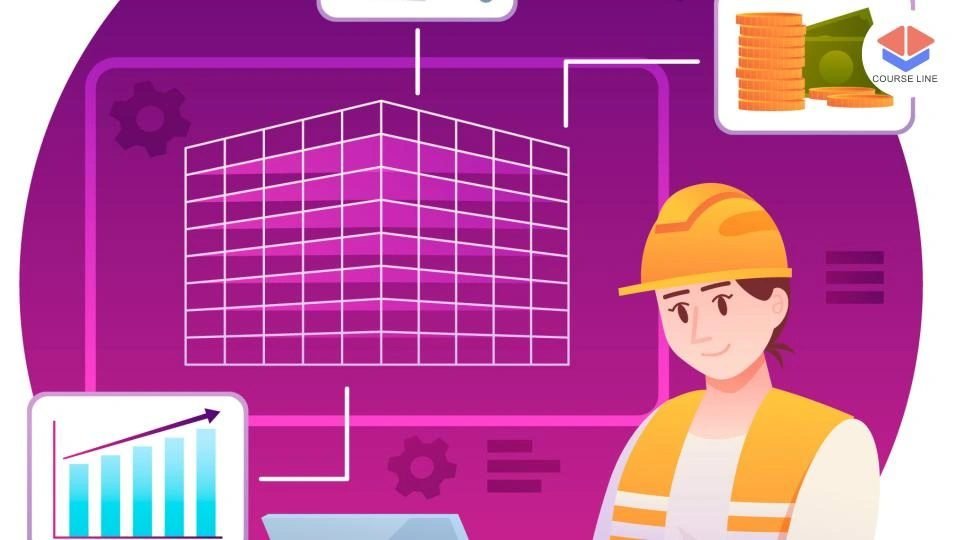Course Features
Price
Study Method
Online | Self-paced
Course Format
Reading Material - PDF, article
Duration
11 hours, 5 minutes
Qualification
No formal qualification
Certificate
At completion
Additional info
Coming soon
- Share
Overview
In today’s data-driven world, statistical analysis plays a vital role in shaping business decisions, scientific discoveries, healthcare strategies, and technological innovation. The Statistics Level 5 Advanced Diploma is designed to provide learners with a thorough understanding of statistical methodologies and their practical implementation using both theoretical frameworks and statistical software.
The course begins with an introduction to the fundamentals of statistics, including types of data, ethical considerations, and effective data collection methods. Students then progress through modules covering descriptive statistics, probability theory, and inferential statistics, including hypothesis testing and confidence intervals. Emphasis is placed on developing a strong foundation in understanding and applying statistical techniques in various contexts.
Learners will gain hands-on experience with regression and correlation analysis, ANOVA methods, and non-parametric statistical tests, all essential for exploring data patterns and making informed decisions. The course also covers advanced topics such as multivariate statistical techniques, time series analysis, and forecasting models, enabling students to analyze complex data trends over time.
To reflect modern industry needs, the diploma introduces students to statistical modelling, big data analytics, and the intersection of machine learning with traditional statistics. Applications across healthcare, finance, business, sports, and scientific research are explored in dedicated modules. The course concludes with a comprehensive research methods section and a final project, allowing learners to design, execute, and report a full statistical analysis.
Who is this course for?
In today’s data-driven world, statistical analysis plays a vital role in shaping business decisions, scientific discoveries, healthcare strategies, and technological innovation. The Statistics Level 5 Advanced Diploma is designed to provide learners with a thorough understanding of statistical methodologies and their practical implementation using both theoretical frameworks and statistical software.
The course begins with an introduction to the fundamentals of statistics, including types of data, ethical considerations, and effective data collection methods. Students then progress through modules covering descriptive statistics, probability theory, and inferential statistics, including hypothesis testing and confidence intervals. Emphasis is placed on developing a strong foundation in understanding and applying statistical techniques in various contexts.
Learners will gain hands-on experience with regression and correlation analysis, ANOVA methods, and non-parametric statistical tests, all essential for exploring data patterns and making informed decisions. The course also covers advanced topics such as multivariate statistical techniques, time series analysis, and forecasting models, enabling students to analyze complex data trends over time.
To reflect modern industry needs, the diploma introduces students to statistical modelling, big data analytics, and the intersection of machine learning with traditional statistics. Applications across healthcare, finance, business, sports, and scientific research are explored in dedicated modules. The course concludes with a comprehensive research methods section and a final project, allowing learners to design, execute, and report a full statistical analysis.
Requirements
In today’s data-driven world, statistical analysis plays a vital role in shaping business decisions, scientific discoveries, healthcare strategies, and technological innovation. The Statistics Level 5 Advanced Diploma is designed to provide learners with a thorough understanding of statistical methodologies and their practical implementation using both theoretical frameworks and statistical software.
The course begins with an introduction to the fundamentals of statistics, including types of data, ethical considerations, and effective data collection methods. Students then progress through modules covering descriptive statistics, probability theory, and inferential statistics, including hypothesis testing and confidence intervals. Emphasis is placed on developing a strong foundation in understanding and applying statistical techniques in various contexts.
Learners will gain hands-on experience with regression and correlation analysis, ANOVA methods, and non-parametric statistical tests, all essential for exploring data patterns and making informed decisions. The course also covers advanced topics such as multivariate statistical techniques, time series analysis, and forecasting models, enabling students to analyze complex data trends over time.
To reflect modern industry needs, the diploma introduces students to statistical modelling, big data analytics, and the intersection of machine learning with traditional statistics. Applications across healthcare, finance, business, sports, and scientific research are explored in dedicated modules. The course concludes with a comprehensive research methods section and a final project, allowing learners to design, execute, and report a full statistical analysis.
Career path
In today’s data-driven world, statistical analysis plays a vital role in shaping business decisions, scientific discoveries, healthcare strategies, and technological innovation. The Statistics Level 5 Advanced Diploma is designed to provide learners with a thorough understanding of statistical methodologies and their practical implementation using both theoretical frameworks and statistical software.
The course begins with an introduction to the fundamentals of statistics, including types of data, ethical considerations, and effective data collection methods. Students then progress through modules covering descriptive statistics, probability theory, and inferential statistics, including hypothesis testing and confidence intervals. Emphasis is placed on developing a strong foundation in understanding and applying statistical techniques in various contexts.
Learners will gain hands-on experience with regression and correlation analysis, ANOVA methods, and non-parametric statistical tests, all essential for exploring data patterns and making informed decisions. The course also covers advanced topics such as multivariate statistical techniques, time series analysis, and forecasting models, enabling students to analyze complex data trends over time.
To reflect modern industry needs, the diploma introduces students to statistical modelling, big data analytics, and the intersection of machine learning with traditional statistics. Applications across healthcare, finance, business, sports, and scientific research are explored in dedicated modules. The course concludes with a comprehensive research methods section and a final project, allowing learners to design, execute, and report a full statistical analysis.
-
- Overview of Statistics and Its Importance 00:10:00
- Types of Data and Measurement Scales 00:10:00
- Descriptive vs. Inferential Statistics 00:10:00
- Data Collection Methods and Sampling Techniques 00:10:00
- Ethics in Statistical Research 00:10:00
-
- Measures of Central Tendency (Mean, Median, Mode) 00:10:00
- Measures of Dispersion (Variance, Standard Deviation, Range, IQR) 00:10:00
- Data Visualization (Histograms, Box Plots, Scatter Plots) 00:10:00
- Skewness and Kurtosis 00:10:00
- Using Statistical Software for Descriptive Statistics 00:10:00
- Introduction to Probability Concepts 00:10:00
- Probability Distributions (Discrete & Continuous) 00:10:00
- Bayes’ Theorem and Conditional Probability 00:10:00
- The Law of Large Numbers and Central Limit Theorem 00:10:00
- Real-world Applications of Probability in Decision Making 00:10:00
- Introduction to Correlation and Regression 00:10:00
- Simple Linear Regression and Interpretation 00:10:00
- Multiple Regression Analysis 00:10:00
- Logistic Regression for Categorical Outcomes 00:10:00
- Regression Assumptions and Model Diagnostics 00:10:00
- When to Use Non-Parametric Tests 00:10:00
- Mann-Whitney U Test and Wilcoxon Signed-Rank Test 00:10:00
- Kruskal-Wallis and Friedman Tests 00:10:00
- Spearman’s Rank Correlation 00:10:00
- Applications in Real-World Data 00:10:00
- Introduction to Time Series Data 00:10:00
- Moving Averages and Smoothing Techniques 00:10:00
- ARIMA Models for Forecasting 00:10:00
- Seasonal and Trend Components 00:10:00
- Practical Applications in Financial and Business Forecasting 00:10:00
- Statistics in Healthcare and Medical Research 00:10:00
- Statistics in Finance and Risk Management 00:10:00
- Statistics in Business and Marketing Analytics 00:10:00
- Sports Analytics and Performance Metrics 00:10:00
- Statistical Consulting and Careers in Statistics 00:10:00
- Exam of Statistics Level 5 Advanced Diploma 00:50:00

No Reviews found for this course.
Is this certificate recognized?
Yes, our premium certificate and transcript are widely recognized and accepted by embassies worldwide, particularly by the UK embassy. This adds credibility to your qualification and enhances its value for professional and academic purposes.
I am a beginner. Is this course suitable for me?
Yes, this course is designed for learners of all levels, including beginners. The content is structured to provide step-by-step guidance, ensuring that even those with no prior experience can follow along and gain valuable knowledge.
I am a professional. Is this course suitable for me?
Yes, professionals will also benefit from this course. It covers advanced concepts, practical applications, and industry insights that can help enhance existing skills and knowledge. Whether you are looking to refine your expertise or expand your qualifications, this course provides valuable learning.
Does this course have an expiry date?
No, you have lifetime access to the course. Once enrolled, you can revisit the materials at any time as long as the course remains available. Additionally, we regularly update our content to ensure it stays relevant and up to date.
How do I claim my free certificate?
I trust you’re in good health. Your free certificate can be located in the Achievement section. The option to purchase a CPD certificate is available but entirely optional, and you may choose to skip it. Please be aware that it’s crucial to click the “Complete” button to ensure the certificate is generated, as this process is entirely automated.
Does this course have assessments and assignments?
Yes, the course includes both assessments and assignments. Your final marks will be determined by a combination of 20% from assignments and 80% from assessments. These evaluations are designed to test your understanding and ensure you have grasped the key concepts effectively.
Is this course accredited?
We are a recognized course provider with CPD, UKRLP, and AOHT membership. The logos of these accreditation bodies will be featured on your premium certificate and transcript, ensuring credibility and professional recognition.
Will I receive a certificate upon completion?
Yes, you will receive a free digital certificate automatically once you complete the course. If you would like a premium CPD-accredited certificate, either in digital or physical format, you can upgrade for a small fee.
Course Features
Price
Study Method
Online | Self-paced
Course Format
Reading Material - PDF, article
Duration
11 hours, 5 minutes
Qualification
No formal qualification
Certificate
At completion
Additional info
Coming soon
- Share
Construction Management Level 3 Advanced Diploma
Course Line238£490.00Original price was: £490.00.£14.99Current price is: £14.99.





